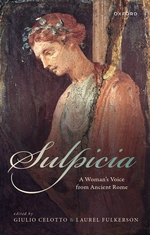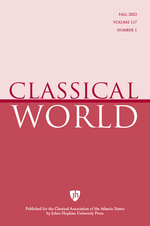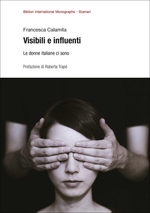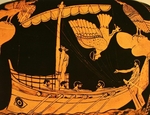
Celotto, G. and Fulkerson, L. eds. 2026. Sulpicia: A Woman’s Voice from Ancient Rome. Oxford: Oxford University Press.
This volume aims to bring Sulpicia’s voice to the foreground by acknowledging her as the author of part of Corpus Tibullianum 3, appreciating the artistry of her work in terms of both poetic technique and engagement with previous literature, and highlighting the pointedly feminine features of her poetry. The first two papers tackle more closely the question of gender. Kristina Milnor argues that the references to material objects in Sulpicia’s poems is a way to comment on, and ultimately undermine, the traditional association of women with embodiment and consumption. K. Sara Myers focuses on wool-working, a typically feminine activity, and explains how Sulpicia uses it to redefine her own role in a mostly male-oriented genre. The next three essays draw attention to Sulpicia’s sophisticated style, particularly her allusive engagement with other poets. Erin M. Hanses shows that Sulpicia evokes Lucretius’ De rerum natura to challenge the Epicurean negative view of love. Judith P. Hallett, who supports Sulpicia’s authorship of all eleven elegies, suggests that throughout her collection Sulpicia contrasts her relationship with Venus with that of Dido, presented in Vergil’s Aeneid as an erotic victim of the goddess. Shifting the focus from didactic and epic poetry to elegy, Alison Keith points out that Propertius and Sulpicia include in their verses analogous motifs and imagery. The two following papers deal more explicitly with the matter of authorship. Eva Werner defends the authenticity of 3.8-18 as the work of Sulpicia on the basis of a thorough examination of the poems’ narrative structure. Jaqueline Fabre-Serris supports the attribution of the inscription AE 1928, 73 to Sulpicia with fresh evidence, combining the etymological analysis of the dedicatee’s name with a meta-literary reading of the epitaph. The volume continues with a piece by Mary Maxwell, who illustrates how her translation and setting to music of Sulpicia’s poems has attempted to make Sulpicia’s authentic, artful, and feminine voice known to a wide contemporary audience, and ends with a discussion by Laurel Fulkerson on possible future directions in the studies on Sulpicia and, more broadly, Latin elegy.

Celotto, G. ed. 2023. Classical World 117.1: Women’s Voice in the Early Roman Empire.
The aim of this special issue is to discuss some episodes, taken from the literature of the early Roman Empire, in which fictional and actual women break the thick curtain of silence that surrounds them, thus reaffirming their identity and reclaiming their role in the community. Giulio Celotto highlights the analogy between the themes of rape and silencing in Ovid’s Metamorphoses. The tales of Io and Philomela can be repurposed to amplify the powerful message of the recently developed Me Too movement, as they emphasize the importance for women victims of sexual assaults to speak up and denounce the violence they have suffered, in spite of their assaulters’ attempts to mute them. Focusing on the portrait of Circe in the Aeneid, the Metamorphoses, and the Argonautica, Jessica Blum-Sorensen points out that Vergil, Ovid, and Valerius Flaccus employ the voice of dangerous and unsettling women to deconstruct the dominant narratives of their days. Circe’s rewriting of Rome’s foundational myth demonstrates that, in order to make history, women must tell their stories in their own voices, at cost of disrupting the norms. Laura Zientek examines the unique character of Erictho’s prophecy in the Bellum civile from an ecofeminist perspective, and argues that, unlike all the other vatic figures in the poem, who are presented by Lucan as mouthpieces of the gods, the witch speaks in her own peculiar voice. Erictho’s transgressive carmina, which display her total control over the natural world, break the pattern of men’s subjugation of women and earth, making it clear that women gain power by finding their own voices. Finally, Caitlin Gillespie analyzes women’s movement in the early Imperial Age as they are described by Tacitus to show that, once deprived of their voices, women use a different instrument to make their requests heard: their bodies. These narratives provide clear evidence that collective action has the power to draw the attention of the world to issues of gender inequality and advocate for change.

Calamita, F. 2023. Visibili e influenti: Le donne italiane ci sono. Milan: Biblion.
The masculine “if-not-otherwise-specified” contaminates every field and every social aspect: culture, language, places of power and decisions. Yet women make up 52% of the world’s population. Women’s contribution to knowledge—from history to literature, from science to cinema—has too often been overshadowed by the male thought. In the name of what is considered untouchable, school programs often present a long list of male authors, artists, personalities, scientists, philosophers, although material has been created to look much further. Francesca Calamita’s new book claims a right of the current wave of feminism: the right to be there, to be studied, represented, listened to, everywhere. It focuses on the Italian context with references to other Western countries; it highlights the names of women writers, scientists, artists and “characters” who have remained hidden for too long; recalls the names of those who took it upon themselves to establish a new canon, with the feminine included; reflects with the readers, triggering a process of collective self-awareness and proposing solutions to change the status quo. Foreword by Roberta Trapè, with a note by Rula Jebreal.
